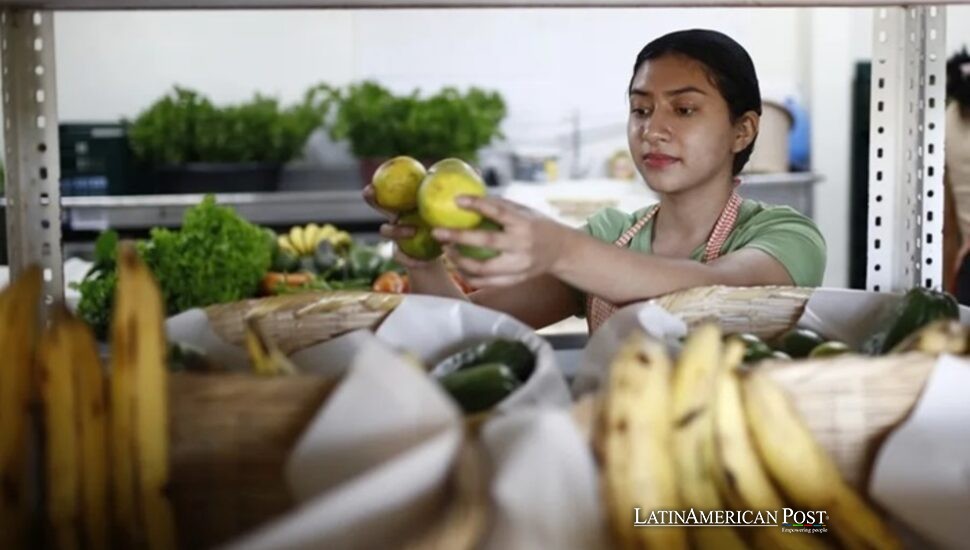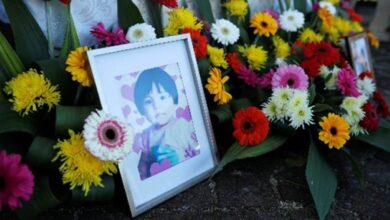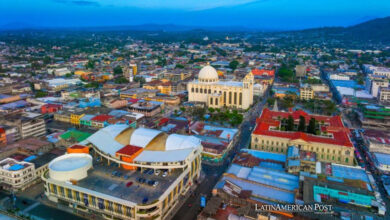El Salvador Women Harvest Hope Through Organic Agriculture

In the rural outskirts of Comasagua, El Salvador, Carmen and Wali cultivate vibrant vegetable plots that feed their families. As members of the agroecological project ‘La Canasta Campesina,’ they exemplify how sustainable farming can transform communities from the ground up.
From Home Gardens to Community Bounty
Carmen López, 52, and her neighbor, 51-year-old Wali del Carmen Flores, live on a windswept stretch of farmland where the climate remains pleasantly mild. Nearly 30 kilometers from San Salvador, they devote themselves to sowing vegetables that nourish their households and supply fresh, affordable produce to surrounding communities.
In an interview with EFE, Carmen shared how her cultivation journey began with small kitchen gardens intended to feed her immediate family. Eleven years later, she grows tomatoes, cucumbers, radishes, lettuce, carrots, celery, onions, and more. “I put my heart into continuing this work,” she said, emphasizing how her organic approach yields healthier crops. “We know these vegetables are safe. They don’t harm us, and we don’t harm anyone else,” she pointed out.
Early on, Carmen’s ability to produce surplus vegetables caught the attention of local organizers. She soon joined La Canasta Campesina, a collective initiative that distributes weekly produce baskets to La Libertad and San Salvador consumers. These sales provide her with a steady income—money that helped raise her four children. According to Carmen, two of them have followed her footsteps onto the land. “I started alone, then my daughter became interested,” she explained to EFE. “Now the whole family is involved, which makes me proud.”
Wali, for her part, joined seven years ago. She cultivates chayote (known locally as guisquil), peppers, and bananas and sells eggs. When asked by EFE what spurred her participation, Wali credited the joy of seeing her harvest feed loved ones and neighbors. “We’re happy because we deliver a good product, we earn some money, and we can see we’re working correctly,” she noted. Wali added that the abundance of produce from local plots helps offset supply shortages that sometimes hit Salvadoran markets. Imported goods from Guatemala, Honduras, and Nicaragua often flood the shelves, yet La Canasta Campesina highlights the viability of fresh, locally grown alternatives.
Empowering Women Through Organic Methods
The ethos behind La Canasta Campesina lies in agroecology: a system of cultivating land without harmful chemical inputs. Carmen prepares her own compost and organic fertilizers, ensuring that her tomatoes and peppers thrive in a chemical-free environment. She has seen firsthand how switching to organic methods can enrich the soil, safeguard her family’s health, and preserve the surrounding ecosystem. “Everything we need, the earth gives us,” she remarked. “We just have to treat it right.”
Wali echoes these sentiments. She told EFE that the practice of agroecology changed her family’s perception of how farming should be done. “What we consume is free of chemicals,” she said. “That means a healthier life for us and the people who receive our produce.” Both women have noticed that neighbors, intrigued by their thriving gardens, now ask about composting and the principles of natural pest control.
The blossoming interest in agroecological farming extends well beyond any single household. As more families switch to organic practices, local biodiversity flourishes—fewer pesticides mean pollinating insects and native plants can recover. Carmen and Wali’s success stories illustrate how, with basic training and reliable support, small-scale farmers can improve their standard of living while fostering a renewed connection to the land.
Among La Canasta Campesina’s most substantial outcomes has been women’s empowerment in Comasagua. Most of the project’s participants are female heads of households, mothers, and grandmothers. Many began farming out of necessity—to feed their children—but soon discovered they could cultivate enough surplus to sell. This newfound independence has a ripple effect, enabling them to pay school fees, invest in simple farm infrastructure, or save for the future.
‘La Canasta Campesina’: A Model for Food Security
Officially, La Canasta Campesina is run by a cooperative of ten local women. As cooperative president Kasandra Portillo explained to EFE, their goal is to enhance food security in Comasagua and surrounding areas by supplying organic goods to “amigos canisters,” or supporters who order baskets. “We produce more than 30 varieties,” Kasandra noted. “Then, based on demand, we plan our growing cycles to guarantee that we can deliver what our customers need each week.”
The cooperative arranges three sizes of baskets—small, medium, and large—priced at $20, $25, and $30, respectively. These typically include leafy greens, root vegetables, bananas, and eggs. The contents vary seasonally, reflecting what local fields can reliably yield. “In the end, La Canasta Campesina becomes a way of life,” Kasandra said. “When we produce, we feed ourselves and earn an income.”
That income is often modest but meaningful. Carmen’s earnings, for example, helped support her four children, two of whom now farm alongside her. Meanwhile, Wali has reinvested in her property, growing her once-tiny plots into a reliable source of nourishment. Through trial, error, and collaboration, both women learned new techniques in composting, seed saving, and water conservation.
The project has also attracted international attention. According to Kasandra, support from France and Spain has bolstered the cooperative’s capacity to train new members, purchase essential equipment, and expand distribution. Around 160 baskets are delivered monthly to a matching number of clients, providing a stable customer base that encourages local farmers to stay the course.
For Carmen, the decision to grow food organically is not just a professional endeavor but a testament to resilience and hope. “When I first began planting, I never thought this would feed so many,” she said, smiling at the thought of just how much her fields have blossomed since then.
Wali similarly believes that more communities in El Salvador can adopt agroecology for better nutrition and economic self-reliance. “It’s a healthier way to live,” she insisted. “If we respect the earth, it provides everything we need.”
As the cooperative heads into its next season, members remain determined to prove that small-scale farming can thrive even in challenging economic times. Each new delivery of vegetables and eggs aims to show Salvadoran families that fresh, chemical-free produce can be as accessible as imports—and perhaps even more rewarding for those who cultivate and consume it.
Also Read: U.S. Announces Sweeping Tariffs on Nations Purchasing Venezuelan Oil
Ultimately, Carmen and Wali’s stories underscore how sustainable agriculture can reshape local economies from the ground up. By blending traditional knowledge with modern organic techniques, these women nurture the soil and a sense of shared purpose. La Canasta Campesina reminds El Salvador—and beyond—that community-driven, eco-friendly agriculture is possible, profitable, and deeply fulfilling.





